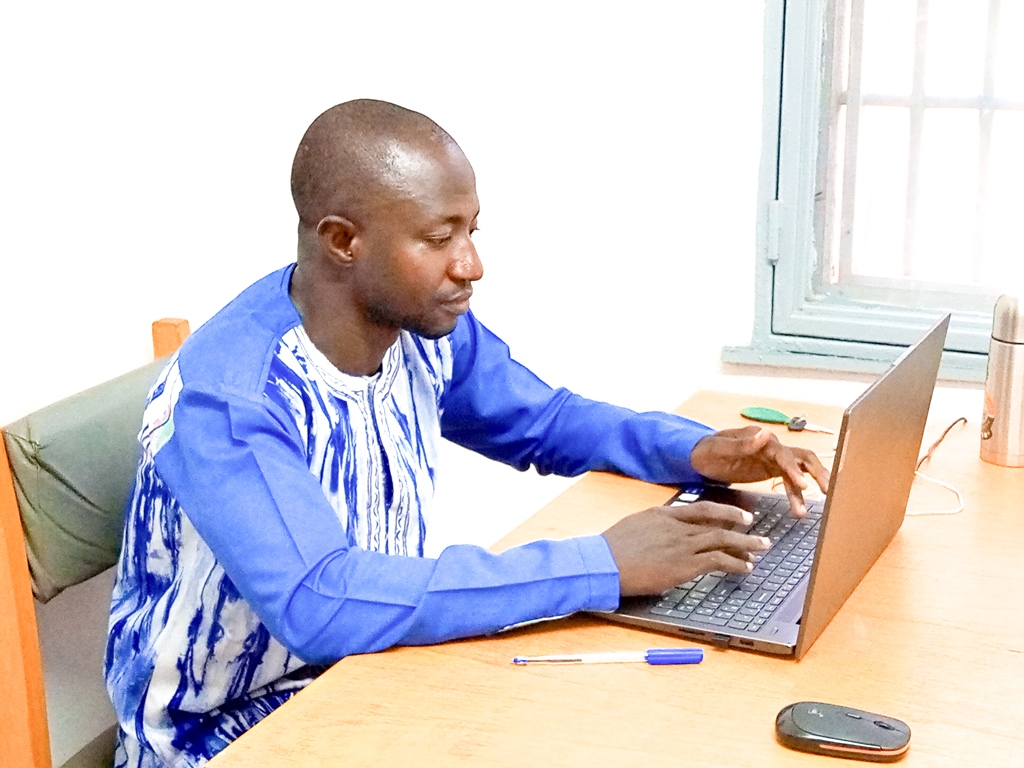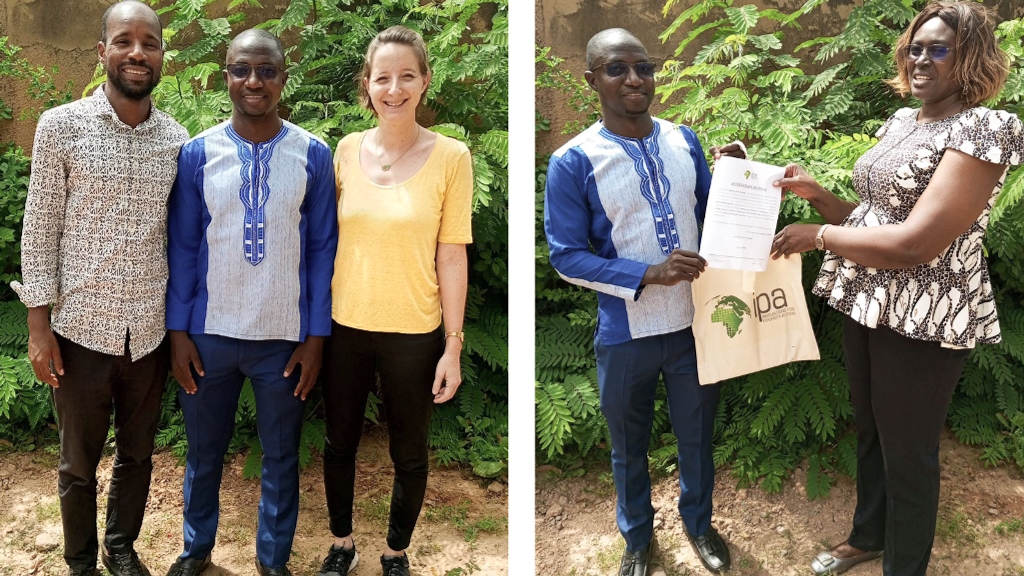In Burkina Faso, the Journey from Intern to Lead Researcher
Issoufou Ouedraogo was in the final year of his Ph.D. studies at Burkina Faso’s Norbert Zongo University, and considering his future path. A student of applied economics, Issoufou had always focused his research on poverty and rural development. But as the end of his degree program approached, he found himself uncertain of how to make the most of his learning, and how to apply his expertise to the poverty and development challenges of the real world.
When he heard that IPA Francophone West Africa (FWA) was recruiting students from his university to be in the first-ever cohort of interns, Issoufou knew he had found the opportunity he was looking for. He applied immediately and was accepted soon after.

Issoufou’s internship was established between IPA FWA and Norbert Zongo University specifically to attract a pool of local researchers like him. The partnership is a part of IPA’s LMIC Researcher Initiative to diversify its research network in low- and middle-income countries (LMICs). Local researchers who are recruited and supported early in their careers can help to build the evidence-to-policy pipelines in their countries while using their expertise to improve the quality of IPA’s research.
“Investing in capacity building for aspiring research students is such a noble cause that I couldn't let this opportunity pass,” he says.
Issoufou’s internship at IPA Burkina Faso lasted only from June to October 2022 but had a profound impact on him. During this period of learning, he gained a deeper understanding of the randomized evaluation method, the gold standard in impact evaluation. He also acquired new skills, including using surveying software such as MyRa and Survey CTO. Perhaps more importantly, he found his path forward.
“My knowledge in conducting field surveys has been significantly strengthened. I now know how to proceed to successfully conduct a survey phase and obtain robust data," he says.
Issoufou is a fast learner, and he seizes an opportunity when he sees it. Not too long after his internship started, he was able to secure a grant as a lead researcher at IPA through an LMIC Researcher Initiative open call in December 2022.
Becoming a principal investigator on a research project will enable Issoufou to combine his academic training with the skills he learned as an intern to improve the lives of people living in poverty.
He will collaborate with Dr. Eugénie Maïga, Associate Professor of Development Economics at Norbert Zongo University, who is a member of the Researcher Diversification Strategy Advisory Board. Their research will investigate the impact of non-timber forest product (NTFP) exploitation on poverty and income inequality in Burkina Faso.
“The study aims to measure the impact of NTFP income on poverty and income inequality in rural areas through random sampling and new estimation methods to isolate the effects of NTFP harvesting participation in two regions of Burkina Faso,” Issoufou explains.
He hopes the research will lay the groundwork for a comprehensive evaluation of the economic potential of NTFPs to eventually inform relevant policies.
During four months of his internship with IPA FWA, Ouedraogo learned invaluable lessons and gained essential experience.
"I was so passionate about working at IPA that it's hard for me to realize that I am already at the end of my internship. I am certain this internship marks the beginning of a long and fruitful collaboration,” he says.

For IPA, collaborating with local universities and researchers like Ouedraogo is key to strengthening its locally grounded research. By 2025, IPA wants at least 35% of its research teams to include researchers from LMICs and has committed funds to make this possible.
From IPA’s perspective, advancing diversity, equity, and inclusion strengthens its work, making it more responsive to the challenges faced by the people it serves. And for LMIC researchers such as Issoufou, IPA’s commitment means not just a job, but a way to improve lives in his country.











